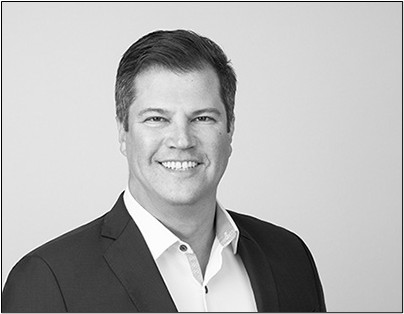Twitter Chat: Walter Byrd on Free-Trade Zones & Industrial RE
Transwestern’s Southeast Managing Director Walter Byrd took time out of his busy schedule to chat with Commercial Property Executive editors about free-trade zones and industrial real estate, in 140 characters or less per Tweet
Transwestern’s Southeast Managing Director Walter Byrd took time out of his busy schedule to chat with Commercial  Property Executive editors about free-trade zones and industrial real estate, in 140 characters or less per Tweet.
Property Executive editors about free-trade zones and industrial real estate, in 140 characters or less per Tweet.
Byrd is recognized as one of the top brokers in the South Florida marketplace. During his career, he and his team have represented some of the largest corporate users in South Florida, have leased properties on behalf of many major institutional owners, and have helped clients purchase and sell assets.
What follows is a transcript of the exchange.
CPE: Welcome to CPE’s Twitter Chat. Today, we have with us Walter Byrd. Walter is the Managing Director at Transwestern, specializing in industrial real estate. We will be chatting live about free- trade zones and industrial real estate.
Byrd: Thanks CPExecutive! I’m glad to be here.
CPE: Walter, what are the benefits that attract companies to foreign-trade zones?
Byrd: The most well-known benefit is the ability to avoid or defer duties on goods, however there are more. More companies are taking advantage of ability to file once a week and pay only one filing fee vs. filing for each entry. For a company receiving 50+ containers a week, the MPF savings could be as much as $20,000 a week.
Transwestern NYC (Twitter follower): Could you share what MPF stands for?
Byrd: Merchandise processing fee, the filing fee paid to U.S. customs for each entry. Each entry could include multiple containers. The last benefit of an FTZ is companies do not pay duty for material that is lost or damaged and disposed of.
CPE: How do buildings achieve FTZ designation?
Byrd: The designation is actually conferred on the land under the building. With the new Alternative Site Framework passed in 2009, property owners can apply to the closest FTZ. Owners can have their property added to an FTZ under the ASF, provided the user makes use of the zone benefits.
CPE: Why the increased interest in groups promoting and companies relocating into FTZs over the last five years?
Byrd: Economic downturn spurred the Department of Commerce to seek ways to increase imports and exports, which would create more jobs. ASF gave FTZs greater flexibility to modify the boundaries and buildings receiving FTZ benefits. This increased company’s interest in FTZs is due to the ability to reduce duties and processing fees.
Jennifer Dawson (Twitter follower): Have you seen any changes to the design of foreign-trade zones, in terms of the physical real estate?
Byrd: Most buildings on FTZ designated land can qualify for status. Over the last 15 years and with increasing frequency since ASF, most FTZ buildings are modern distribution or manufacturing buildings.
CPE: How will the widening of the Panama Canal affect FTZs?
Byrd: The canal widening will likely increase the volume of goods coming into the Gulf and East Coast ports by 5-7 percent. With few ports able to handle the draft of the post-Panamex vessels, the concentration of goods into those fewer ports should increase the demand for FTZs as companies take advantage of the benefits.
CPE: When should a landlord consider having a property/park designated as an FTZ?
Byrd: Landlords generally seek FTZ status when they have the demand for status from a user. Owners with properties near major ports/intermodal hubs may create a competitive advantage by pre-designating the site as an FTZ. Cost for FTZ status is minimal for a landlord. Zone status can be (de)activated, so site can be used for non-FTZ use.
NAR Global: What are requirements for building in FTZs? Possible to approximate number of buildings in FTZs/number of people employed (U.S.)?
Byrd: Requirements for buildings vary based on use and tenant needs. From a compliance perspective, the most important aspect is securing the facility to maintain the integrity of the FTZ.
CPE: What kinds of companies should consider the FTZ program?
Byrd: Any company that occupies 200,000 square feet of warehouse space and imports/exports goods through that warehouse could reap FTZ benefits. Any company manufacturing or assembling goods with as little as $5 million of imported parts or raw materials should evaluate as well.
CPE: Thank you for the informative chat, Walter.
Byrd: It’s been a pleasure! Glad that I could be an informative source of information on this specific topic. For more information on foreign-trade zones, here’s a helpful brochure https://ow.ly/vEMRw #FTZ #CPEchat.







You must be logged in to post a comment.